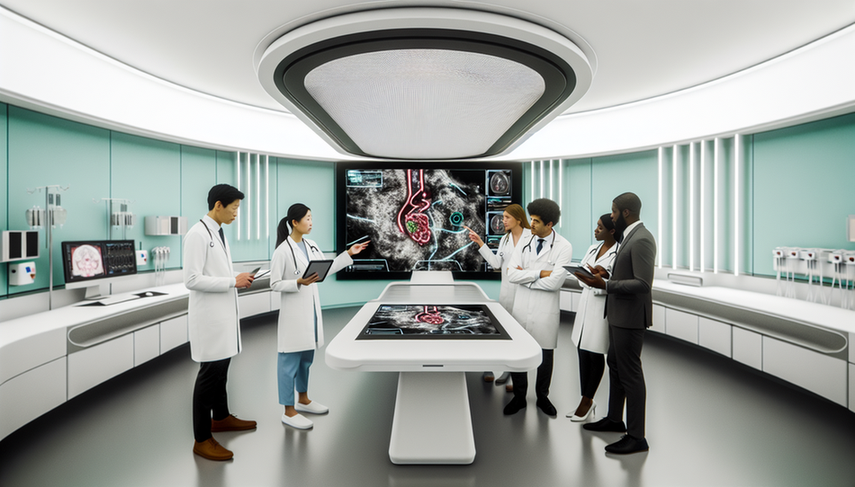AI in Diagnosis: Case Studies and Benefits of Machine Learning in Clinical Practice

Artificial Intelligence (AI) is transforming the field of medical diagnosis, offering new AI tools that promise to enhance the accuracy and efficiency of disease identification. Computer-aided diagnosis is becoming a tangible reality thanks to advancements in medical machine learning. This article explores how these technologies are being applied in clinical practice through various clinical case studies, highlighting their benefits and challenges.
Diving Deeper into Machine Learning in Medical Diagnosis
Machine learning has proven to be a powerful tool in diagnosing complex diseases. A notable example is its application in the diagnosis of rare genetic disorders, where AI has facilitated faster and more accurate diagnoses by analyzing large datasets of genetic and clinical information. Additionally, in the field of radiology, AI is revolutionizing the way medical images are analyzed, improving image segmentation and computer-aided diagnosis.
Another area where AI is making a significant difference is in clinical decision-making. Prescriptive models based on machine learning are assisting physicians in determining appropriate medication dosages and predicting potential complications in diseases such as severe dengue. These models not only predict outcomes but also suggest specific actions to enhance patient care.
In microbial diagnosis, AI has improved the accuracy and speed of analyses, as seen in the diagnosis of microbial infections. AI's ability to classify bacteria and assess antimicrobial susceptibility is transforming clinical microbiology, enabling faster and more precise diagnoses.
Conclusions
The integration of AI in medical diagnosis is redefining clinical practice, offering significant benefits in terms of accuracy, efficiency, and treatment personalization. However, it is crucial to address the ethical and technical challenges associated with its implementation. The need for high-quality data and transparency in algorithms are fundamental aspects to maximize the potential of these technologies. As we continue to explore the potential of medical machine learning, fostering collaboration between AI developers and healthcare professionals is essential to ensure that these tools are used ethically and effectively.
Referencias
- [1] The Impact of Artificial Intelligence on Optimizing Diagnosis and Treatment Plans for Rare Genetic Disorders
- [2] Redefining Radiology: A Review of Artificial Intelligence Integration in Medical Imaging
- [3] Case studies of clinical decision-making through prescriptive models based on machine learning
- [4] The Impact of Artificial Intelligence on Microbial Diagnosis
Created 13/1/2025
